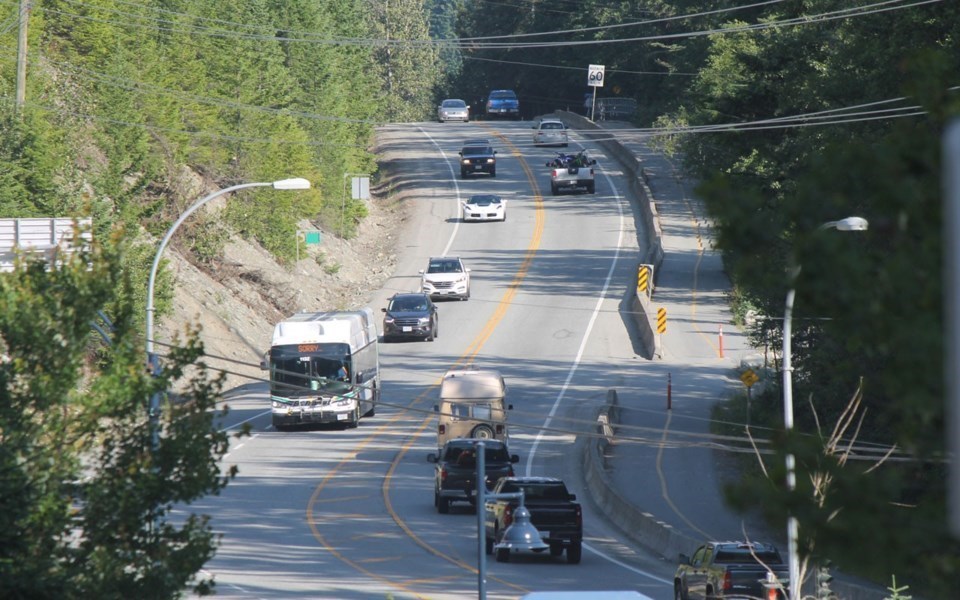“Reliable and affordable regional transit will reduce our auto-dependence, alleviate traffic congestion, shrink our carbon footprint, and make it easier for residents without cars to access employment, educational opportunities and other essential services,” –Mayor Jack Crompton
I think most of these claims are false, and will not be solved with regional transit.
What problems are we looking to solve?
There are dozens of buses running scheduled service between Vancouver and Mount Currie every day, but these services are not overrun with customers. If anything, regional transit would take away revenue from the fantastic services that already exist.
Too expensive? We already have free transit in Whistler every weekend, and that service is not overrun. If expense is a problem, then we should find a way to subsidize the existing services.
Commuters to jobs? I just don’t see Squamish commuters ditching their cars, because you’d have to get from your house to the transit hub, and then wait for a bus to arrive in Whistler at inconvenient times—if the frequency of service was less than 10 minutes, then maybe… but there won’t be funding for that.
Traffic on the roads? I think most calls for regional transit are from people who want OTHERS to be on the bus so there’s less traffic. Buses will only be slower than driving, because there are no bus lanes and cars (a.k.a. mobile living rooms) are so comfortable. Won’t solve this.
Access for First Nations from Mount Currie? There are already buses that connect to the awesome bus service that runs from Whistler if Vancouver is the ultimate destination. I know people cannot party late and ride the bus—but a full-fledged regional transit service seems like an overbuilt solution to what a few subsidized limos could accomplish.
Improving safety on public buses? I don’t see how that is in the mandate of regional transit—it’s just conflating regional transit as a solution for other systemic issues.
When I hear claims like “I have friends who take the bus to Vancouver as often as possible,” I laugh in confusion: when has it been impossible to take the bus? This is not even a problem, let alone one that we need to find solutions for.
We cannot find enough drivers for our local transit and school buses, a challenge that the private operators seem to have overcome, so this issue will only exasperate with regional transit.
Now, if driving were more expensive—think road tolls (ideally wealth- and weight-based)—and more inconvenient (think indirect and without much parking), then we would already see the existing services busier. This should be the first step towards building regional transit, using the bandwidth that’s currently available and discouraging driving. This won’t happen because our elected officials are so beholden to the status quo and our automobile-centric mindset—they cannot get elected by wielding a stick at car drivers. But I want to provide solutions that are proven to work, and I think our leaders should try leading us for a change.
I do think regional transit is coming, and it will be a fraction of the cost anything a government official discusses. It will be in the form of Autonomous Electric Vehicles. There is an inflection point coming in the next few years when the cost of computing and the cost of EVs coincide (think smartphones in 2007) to offer trips for 10 cents per kilometre. I know there are lots of autonomous vehicle skeptics out there, but the tech will be so good, so safe and so affordable we will be compelled to use the services due to safety and price.
Here is what our governments should be doing today to promote regional transit:
1: Subsidize existing private operators including buses and taxis;
2: Make driving more unpleasant, slower and more expensive—reflective of its true costs;
3: Build local mobility solutions (i.e. build for e-bikes) that will integrate with local and regional transit;
4: Designate the Sea to Sky as a multi-model and autonomous testing ground: want to beta test your new AV solutions? Do it in the Sea to Sky—to promote investment, innovation, and use it as a marketing tool.
Big, empty BC Transit buses will not make a dent in our regional transit needs, and the logic is painfully outdated: it’s time to put this archaic talk to rest once and for all—it’s time to plan for the future.
With an eye to the future, if most locals, commuters and visitors were to arrive by bus and autonomous vehicles, our multi-million-dollar Gateway Bus Loop would be overrun with people. That’s the goal—what a beautiful picture to paint.




